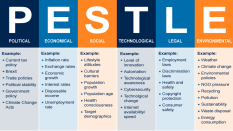Business and Management
Main menu BBC 4U
Busines & Management - creation and thriving
Business and Management articles
Definition - business & management

Commitment + Competency = Intellectual Capital
A Comprehensive Exploration of Concepts, Principles, and Practices
The sustainability of corporations is not simple but composed of many different parts that are closely linked to the other spheres of an enterprise which in turn affect it at its core, thus having a profound impact on the daily functioning and planning methods within organizations. Leaders have a high responsibility for defining with vision those strategies regarding sustainability and making sure they do come into existence as well as being in harmony with what the corporation aims for overall on higher levels like top management.
The impact of this executive authority goes beyond the organization to affect global supply chains and industries as well. It is up to these high-ranking managers and top-level executives to take the mantle of promoting corporate responsibility on a wider spectrum. The establishment and putting into operation of corporate sustainability entails very clear priorities that have to be put in place with all due care, starting from prioritization down to implementation and communication throughout the entire corporation so that every stakeholder is brought on board in line with the sustainability objectives.
Managers' ability to carry out these sustainability strategies is critical: for it has an immediate impact on the efficiency and coverage of the sustainability programs.
Level of management
The embedding of sustainability in business strategy is all encompassing: it does not only address the internal management issues but emphasizes a plea for leadership driven by values with the common good placed above individualistic pursuits. This two-fold view implies that organization— as a system entity in its own regard — can also be seen as a steward with respect to societal or environmental concerns. The initiatives of such integration demand eventually a wholistic understanding which additionally acknowledges an interlinked nature between leadership (prioritizing values) and management capabilities, corporate responsibility and their dependence on others at all levels within the organization.
Types of managers
Line manager - is resposible for work activities that directly affect organization's output
Staff manager - is technical expertise to advice and support the efforts of line workers
Functional manager - is responsible for a single area of activity
General manager - is responsible for more complex units that inlcude many functional areas
Administrator - work in public and non-profit organizations
Management process
Management process is planning, organizing, leading and controling the use of resources to accomplish performance goals.
Planning (setting objectives, deciding how to achive them)
Organizing (arranging taskt, people, other resources)
Leading (inspiring people, supporting them to achieve their best)
Controlling (measuring performance, taking actions to ensure desired result)
Robert L. Katz - three categories skills of managers
Technical skills - the ablity to use expertise and/or proficency to perform a task.
exapmples:
- use statistics to analyse data from a market survey
- knowing how to write a business plan
- programming/developing an app.
Human and Interpersonal skills - "Soft" skills refer to the ability to communicate, collaborate, network, lead and contribute to teams, engage with others to get things done. Human skills - work well in cooperation with others.
Emotional intelligence - manager must have!
Conceptual skills (critical-thinking skills) - is the ability to think analitically to detec and solve problems. Conceptual skills gain is particularly important as one moves from up from lower to higher levels of management because the problems faced at higher levels or responsibility are often unstructured, full of complications and interconnections.





















